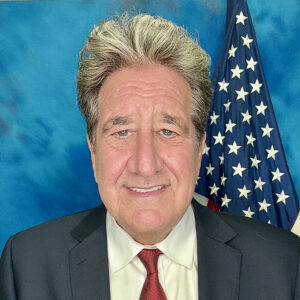By Adrian H. Halili, Reporter
THE APPOINTMENT of a new US ambassador to the Philippines is expected to deepen Washington’s political and security ties with Manila as the Trump administration refocuses on the Indo-Pacific region, analysts said.
US President Donald J. Trump last week named Florida businessman Lee Lipton as ambassador to the Philippines, replacing MaryKay L. Carlson, who held the post from 2022. The selection comes amid escalating tensions with China in the South China Sea and renewed US efforts to reinforce alliances across Asia.
“Such appointment may signal further deepening of our political and economic ties given that we are undoubtedly the US’ closest ally within the region, alongside Japan,” Josue Raphael J. Cortez, a diplomacy instructor at De La Salle–College of Saint Benilde, said in a Facebook Messenger chat.
The move underscores Washington’s intent to strengthen its regional partnerships under Mr. Trump’s second term, according to Chester B. Cabalza, founding president of the think tank International Development and Security Cooperation.
The long-overdue appointment of the envoy will trumpet the US’ foreign policy reset in the Indo-Pacific region, he said via Messenger chat. “Trump will embolden its relationship with Manila due to its strategic proximity in the first island chain.”
He said Mr. Lipton is expected to carry Washington’s message of deterrence toward Beijing, signaling that the US would step up its “ironclad” commitment to defend its allies and maintain freedom of navigation in the contested waters.
The Philippines has emerged as a key player in regional security, challenging China’s expansive maritime claims in the South China Sea and expanding defense cooperation with the US, Japan, and Australia. Manila and Washington are treaty allies under a 1951 Mutual Defense Treaty, which obligates both nations to come to each other’s aid in the event of an armed attack in the Pacific, including the South China Sea.
The alliance has faced renewed tests amid China’s growing military assertiveness, with Chinese vessels repeatedly harassing Philippine supply missions in the West Philippine Sea. The vital waterway handles an estimated $3 trillion in annual trade and is considered a flashpoint for potential regional conflict.
Mr. Cortez said Mr. Lipton’s appointment reflects the Trump administration’s intent to wield greater influence in the region as China challenges US dominance.
He added that Washington is likely preparing for contingencies involving Taiwan, which Beijing considers a breakaway province. “The Philippines, as the closest host of around three US military bases, will certainly be tapped to aid American troops in case of deployment,” he said.
China has threatened to annex Taiwan by force, a move that could endanger the island’s 23 million people and disrupt the global supply of semiconductors.
Analysts said Mr. Lipton could push additional fortifications at Philippine bases near the South China Sea, as both nations expand defense cooperation under their Enhanced Defense Cooperation Agreement (EDCA). The pact allows US access to military sites across key Philippine locations, including those near Taiwan and the Spratly Islands.
“The Philippines will become an instrument of intensified American presence in the region in the years and decades to come,” Mr. Cabalza said.
